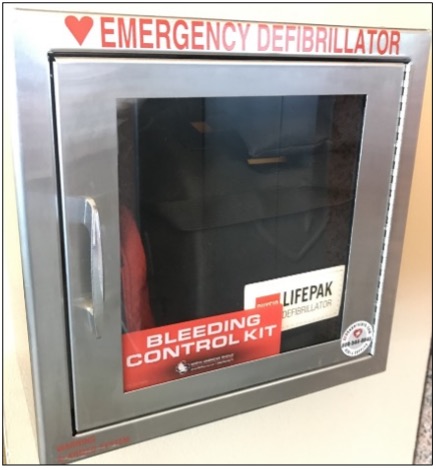First aid is defined as the necessary and temporary assistance an injured person needs until professional medical care can be provided. Having the ability and knowledge to perform first aid in the workplace is important because a person can become sick or injured in any place and at any time. When this happens, it can be crucial that someone acts quickly on the sick or injured person’s behalf. Here we will discuss the three primary goals of first aid as well as share some steps that one can take when responding to an emergency.
The first goal is to preserve life. This may be done by controlling serious bleeding, performing CPR, properly using an AED on someone who has suffered a sudden cardiac arrest, and administering an EpiPen or naloxone in certain situations.
The second goal is to prevent deterioration. Helping the sick or injured person remain still and calm or assisting the person to a safe place, if the area is unsafe, can help to prevent further illness or injury.
The third goal is to promote recovery. Applying a bandage to an injury or quickly cooling a burn will help to promote recovery.
It’s also important to ensure your own safety as well as the safety of others when responding to an emergency. To do this one should always assess the scene for safety prior to administering first aid. Make sure that you do not become a victim while trying to assist others.
Familiarize yourself with the safety devices in or near your workplace. There are well over 300 AEDs and Stop the Bleed kits across Emory’s campus. If you would like to learn how to use them and what to do when responding to an emergency, you must reach out to the Office of Critical Event Preparedness and Response (CEPAR) and take one of our CPR, AED, Stop the Bleed and First Aid training classes.
Finally, make sure to save the Emory emergency phone number (404-727-6111) or download the LiveSafe App to your phone to quickly connect with Emory Police Department (EPD) and Emory Emergency Medical Services (EEMS) for further medical care.

